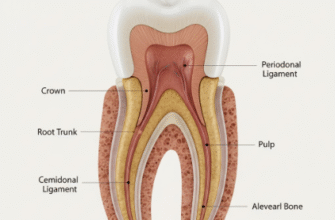Finding a new dentist can feel like a bit of a quest. You’re not just looking for someone to poke around in your mouth; you’re seeking a healthcare partner, someone you trust with your smile and overall oral well-being. It’s a decision that deserves a bit of thought and research. So, where do you begin this important search? Let’s break down the steps to help you find a dental professional who’s a great fit for you and your family.
Start with Your Network
Often, the best leads come from people you already know and trust. Ask friends, family members, colleagues, or even your family doctor for recommendations. People are usually quite honest about their experiences, both good and bad. Inquire about specifics: What do they like about their dentist? Is the staff friendly? Are appointments easy to schedule? Is the office clean and modern? These personal insights can be invaluable.
Don’t just ask for a name; ask why they recommend that particular dentist. Someone might love their dentist for their gentle approach, while another might prioritize cutting-edge technology. Understanding their reasons will help you see if their priorities align with yours.
Dive into Online Resources
Once you have a few names, or if you’re starting from scratch, the internet is your next port of call. Look up clinic websites. A professional, informative website is a good sign. It should provide information about the dentists, the services they offer, their philosophy of care, and contact details. Many sites also feature patient testimonials.
Beyond official websites, check out independent review sites. Be mindful that reviews can be subjective, but look for overall trends. Are there consistent comments about professionalism, cleanliness, or billing practices? A few negative reviews are normal, but a pattern of complaints should raise a red flag. Conversely, a flood of overwhelmingly positive, yet generic, reviews might also warrant a bit of caution.
Check Credentials and Experience
This is a crucial step. Ensure any dentist you consider is properly licensed and board-certified. You can usually verify this through your state or national dental board’s website. Look into their educational background and any advanced training or specializations they might have. How long have they been practicing? While newer dentists can be excellent, extensive experience often brings a broader understanding of various dental situations.
If you have specific needs, like cosmetic dentistry, orthodontics, or pediatric care, check if the dentist has specialized training or a significant focus in that area. A general dentist can handle many things, but complex cases might benefit from a specialist’s touch or a general dentist with advanced certifications in that field.
Always take the time to verify a dentist’s credentials with your local or national dental board. This step ensures they are licensed and in good standing, providing a foundational level of trust. Many dental boards offer convenient online verification tools, making this check quick and straightforward. It’s a simple due diligence measure that offers significant peace of mind before you commit to care.
Consider the Range of Services Offered
Think about your current and potential future dental needs. Does the practice offer a comprehensive range of services? Look for things such as:
- Routine check-ups and cleanings
- Fillings, crowns, and bridges
- Root canal therapy
- Extractions
- Cosmetic procedures (e.g., teeth whitening, veneers)
- Pediatric care, if you have children
A practice that offers a wider array of services can be more convenient, potentially saving you from being referred out for common procedures. However, don’t discount a practice that excels in general dentistry and has a strong network of specialists they refer to when needed. The key is understanding what they offer and how it aligns with your requirements.
Location, Hours, and Accessibility
Practicalities matter. A conveniently located office, whether near your home or workplace, makes it easier to keep appointments. Check their office hours. Do they offer early morning, late evening, or weekend appointments if your schedule requires it? What is their policy for rescheduling or canceling appointments?
Also, consider physical accessibility if that’s a concern for you or a family member. Is the office wheelchair accessible? Is there ample parking or easy access via public transport? These logistical factors contribute significantly to a stress-free dental experience.
Technology and Office Atmosphere
While not the only factor, a dental office that invests in modern technology often indicates a commitment to current practices and patient comfort. This could include digital X-rays (which use less radiation), intraoral cameras, laser dentistry, or CAD/CAM technology for same-day crowns. During a visit or by looking at their website, you can get a sense of this.
Pay attention to the overall atmosphere of the office when you first visit or call. Is it clean, organized, and welcoming? A calm and pleasant environment can make a big difference, especially if you experience dental anxiety. The demeanor of the front office staff also sets the tone for your entire experience.
The Importance of a “Meet and Greet” or Consultation
Many dental offices offer a brief, complimentary consultation or a “meet and greet” for prospective patients. This is an excellent opportunity to see the office, meet the dentist and staff, and ask questions. It’s your chance to gauge their communication style and see if you feel comfortable.
Prepare a few questions beforehand. You might ask about their approach to preventive care, how they handle dental anxiety, or their experience with specific procedures you might need. This initial interaction can tell you a lot about whether the dentist is a good fit for your personality and communication preferences.
Communication is Key
A good dentist will listen to your concerns, explain diagnoses and treatment options clearly, and involve you in decisions about your care. They should use language you can understand, not just dental jargon. Do they take the time to answer your questions thoroughly and patiently? Do you feel heard and respected?
The entire dental team, from the hygienist to the receptionist, contributes to the communication environment. Friendly, helpful, and professional staff can greatly enhance your comfort and confidence in the practice.
Emergency Care Policies
Dental emergencies can happen, and it’s reassuring to know how your dentist handles them. Inquire about their policy for after-hours emergencies. Do they have an on-call system? Do they refer to a specific emergency clinic? Knowing this in advance can save you a lot of stress if you find yourself in urgent need of dental care.
Understanding Insurance and Payment Options
Before committing to a dentist, understand their insurance and payment policies. Confirm if they accept your dental insurance plan. Are they in-network or out-of-network? This can significantly impact your out-of-pocket costs. Ask how they handle claims and what your estimated co-pays will be for common procedures.
If you don’t have insurance, or if you need a procedure not fully covered, inquire about payment options. Do they offer payment plans or financing options? Transparency about costs is a hallmark of a reputable practice. You should feel comfortable discussing financial arrangements before treatment begins.
Trust Your Gut Feeling
After all the research and a potential visit, how do you feel? Sometimes, it just comes down to a gut feeling. Do you feel comfortable and confident with this dentist and their team? Trust is paramount in any healthcare relationship. If something feels off, even if you can’t quite pinpoint why, it’s okay to continue your search.
Choosing a dentist is a personal decision. By taking these steps, you’re investing in your long-term oral health and peace of mind. A good dentist is more than just a clinician; they are a partner in helping you maintain a healthy, happy smile for years to come.








